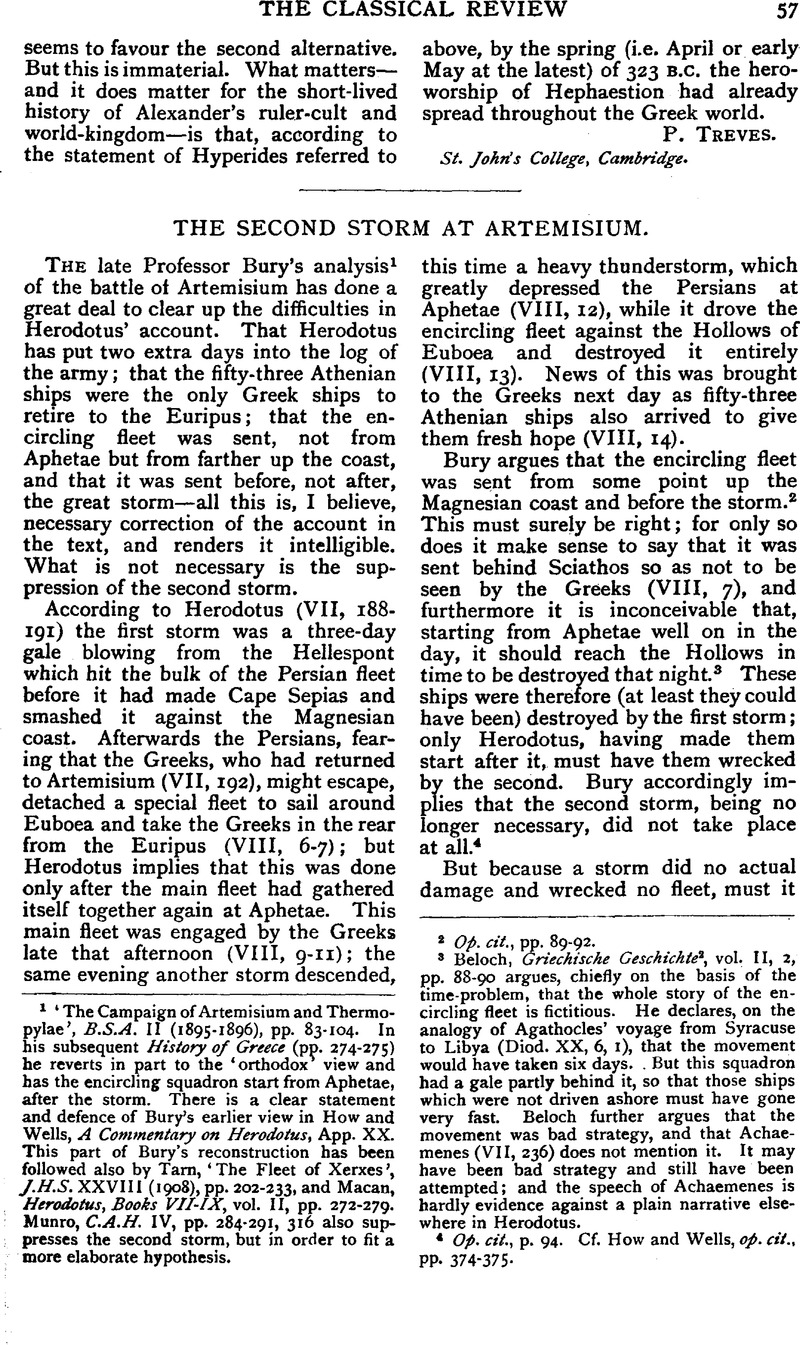No CrossRef data available.
Published online by Cambridge University Press: 27 October 2009

page 57 note 1 ‘The Campaign of Artemisium and Thermopylae’, B.S.A. II (1895–1896), pp. 83–104Google Scholar. In his subsequent History of Greece (pp. 274–275) he reverts in part to the ‘orthodox’ view and has the encircling squadron start from Aphetae, after the storm. There is a clear statement and defence of Bury's earlier view in How and Wells, A Commentary on Herodotus, App. XX. This part of Bury's reconstruction has been followed also by Tarn, , ‘The Fleet of Xerxes’, J.H.S. XXVIII (1908), pp. 202–233Google Scholar, and Macan, , Herodotus, Books VII-IX, vol. II, pp. 272–279Google Scholar. Munro, , C.A.H. IV, pp. 284–291Google Scholar, 316 also suppresses the second storm, but in order to fit a more elaborate hypothesis.
page 57 note 2 Oþ. at., pp. 89–92.
page 57 note 3 Beloch, , Griechische Geschichte2, vol. II, 2, pp. 88–90Google Scholar argues, chiefly on the basis of the time-problem, that the whole story of the encircling fleet is fictitious. He declares, on the analogy of Agathocles' voyage from Syracuse to Libya (Diod. XX, 6, 1), that the movement would have taken six days. But this squadron had a gale partly behind it, so that those ships which were not driven ashore must have gone very fast. Beloch further argues that the movement was bad strategy, and that Achaemenes(VII, 236) does not mention it. It may have been bad strategy and still havebeen attempted; and the speech of Achaemenes is hardly evidence against a plain narrative elsewhere in Herodotus.
page 57 note 4 Oþ. cit., p. 94. Cf. How and Wells, oþ. cit., PP. 374–375.
page 58 note 1 How, loc. cit., thinks the account ’reads like a duplicate (pf the first storm) with the exaggerations and graphic touches, taken perhaps from an epic poem‘ (what epic?) ’toned down or omitted‘. To me the passage seems very real; but that is perhaps a matter of taste.
page 58 note 2 Perhaps Pytheas? Cf. Hdt. VII, 181; VIII, 92; Munro, op. cit., p. 284.